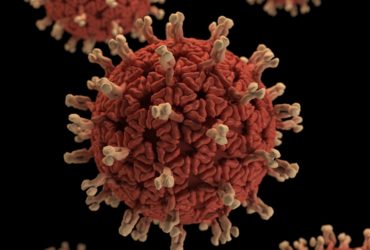
The coronavirus pandemic, a black swan event that began as a health crisis, has morphed into a financial crisis. It’s clear that COVID-19 will have a more significant near-term impact on the economy than initially estimated. Moody’s says U.S. economic growth will decline 1.6 percent in Q1 and 2.5 percent in Q2 on an annualized basis, before rebounding in the second half. It’s difficult to anticipate what may come next in such an unprecedented, rapidly changing situation.
In the meantime, in a spirit of calm, let’s examine five areas of positive news:
1. Commercial real estate fundamentals remain relatively attractive and interest rates have fallen to historic lows. With the stock market in turmoil, commercial real estate may draw investors seeking a safe haven and superior yields to the bond market. Office properties with longer-term leases are well-positioned to withstand a downturn, and the multifamily sector could see minimal impact if the shock to employment is short-term. Industrial properties may be adversely affected as a result of supply chain issues, but again, this could be a temporary phenomenon. Hospitality assets will likely be stressed due to travel restrictions and conference cancellations. While grocery stores and other staple providers are seeing higher demand and scrambling to keep shelves stocked, bricks-and-mortar “leisure” retailers may suffer from reduced traffic and shortened hours.
2. We are seeing a coordinated global response to the crisis. On March 15, the Federal Reserve lowered benchmark rates a full percentage point to nearly zero in a second emergency rate cut and initiated a $700 billion quantitative easing (QE) program. The Fed announced that it would adjust a program in coordination with five other central banks (Canada, England, Japan, Switzerland and the European Central Bank) to make U.S. dollars available at near-zero interest rates to enhance global liquidity through swap-line arrangements. The G-7 leaders met by teleconference on March 16 and issued a statement pledging to do “whatever is necessary” to protect health, restore economic confidence, support trade and investment, and ensure scientific cooperation.
3. Legislative action will help U.S. consumers navigate the disruption. On March 17, the Wall Street Journal reported that the Trump Administration is seeking an $850 billion stimulus package, which follows an $8.3 billion package approved in early March to assist state and local governments. A second relief bill was approved by The House of Representatives to support American workers with more robust unemployment benefits, among other measures. At this writing, the Senate was reviewing the bill. Meanwhile, homeowners are rushing to take advantage of lower interest rates. As the 30-year fixed-rate mortgage fell to 3.36 percent, weekly applications hit an 11-year high, according to the Mortgage Bankers Association. Cash-out refinances could position consumers to navigate a downturn by reducing their cost of debt.
4. The widespread mandate to “flatten the curve” will help mitigate the impact. As of March 17, Johns Hopkins reported nearly 182,000 cases of COVID-19 and 7,155 deaths worldwide. But it is worth noting that in 80 percent of cases, people with coronavirus experience mild to moderate symptoms, according to a World Health Organization-China Joint Mission report issued in February. While it can be jarring to see cities shut down schools, theaters, sports stadiums, restaurants and bars, these measures have been effective in Asian countries in containing the virus, protecting the most vulnerable and helping hospitals manage caseloads.
5. Unlike previous economic disruptions, we know how this one will end. Some 35 companies and academic institutions are racing to develop a vaccine, according to The Guardian. U.S. biotech firm Moderna, which is working with the U.S. Institutes of Health, just began testing on humans in Seattle this week, and German biotech startup BioNTech will begin human clinical trials in April. Between the slow spread of the virus and a vaccine, the population will eventually develop herd immunity. But this will take time.
With interest rates at all-time lows, many investors are looking to refinance to take advantage of long-term debt options. The current capital landscape is extremely complex, dynamic and fluid. With our ability to clear the market and access to hundreds of different lenders, Marcus and Millichap Capital Corporation is uniquely positioned to help investors navigate the capital markets and find the best solution.


